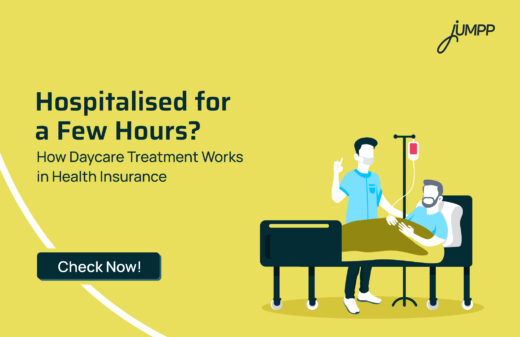Upgrade Your Coverage Easily Through Health Insurance Portability

When you buy a health insurance policy, you expect it to cover your medical needs properly. You rely on the company to handle claims efficiently and offer the benefits as promised. You also expect the company to offer good service. But what if you are unhappy with the claim process, customer support, or the benefits offered? Until a few years ago, the only way out was to cancel your current policy and buy a new one from another insurer. This often meant losing your waiting period benefits. But now, there is a feature called health insurance portability. This system lets you upgrade your coverage without losing these benefits.
What is it, what are the health insurance portability rules in India, and how to port health insurance?
Let’s discover!
What is Health Insurance Portability?
Health insurance portability is a very simple feature that allows you to move your existing health insurance policy to a new insurer without losing benefits you have already earned.
These benefits generally include No Claim Bonus (NCB), waiting period credits, free health check-ups, and more. Portability gives you the flexibility to switch to a better insurance provider if you are not satisfied with your current one. You can use this facility as long as your current policy has been renewed continuously without any gaps.
Health Insurance Portability Rules in India
The Insurance Regulatory and Development Authority of India (IRDAI) has set rules to make switching or moving health insurance policies easy for policyholders.
Here’s what you need to know:
1. Who Can Port:
Portability is allowed for all individual health insurance policies, including family floater plans. This means you can move your policy from one insurer to another without losing your benefits.
2. Migration Options:
- Individual policyholders can migrate their policy to another individual plan, a family floater plan, or even a group health insurance policy if they meet the group’s requirements.
- Members under a group health policy can move to an individual or family floater policy when leaving the group or if the group policy changes or ends.
3. Benefits Carried Forward:
When you migrate, your new policy will carry over the sum insured and any cumulative bonuses from your previous policy. Only unexpired waiting periods for pre-existing conditions will apply, and these cannot be longer than those in your previous policy.
4. Underwriting Rules:
- If you have been continuously covered under your previous individual policy for four years or more, you can migrate without additional health checks.
- Migration from a group policy may require underwriting. The insurer must give a decision within 15 days if underwriting is needed.
5. How do you apply, and what are the portability rules?
- You should apply at least 30 days before your current policy renewal. Some insurers may accept applications with less notice. You must note that there are no extra charges that can be levied for migration.
6. Important Rights:
- Even family members under a group policy can migrate to individual or family floater policies.
- Once migrated, portability to another insurer is allowed under the standard rules.
How to Port Health Insurance Policy Online?
If you want to port health insurance, you must follow the steps mentioned below:
Submit a Request: You need to first send a health insurance portability request to the new insurance company at least 45 days before your current policy expires.
Receive Forms: The new insurer will share the proposal and portability forms and provide details of available health plans.
Choose a Plan: Select the plan you want to switch to and submit the completed forms to the new insurer.
Verification: The new insurer will check your claim history and medical records from your previous insurer or through IRDAI’s website.
Information Sharing: The previous insurer must share your details through IRDAI’s portal within 7 working days. If there is any delay, the new insurer may pause your request.
Final Decision: The new insurer will approve or reject your portability request within 15 days of receiving all information. If the process is completed within this period, your portability request must be accepted.
Advantages of Health Insurance Portability
Let’s explore the benefits of health insurance portability.
1. When you port your policy, you don’t lose the advantages you’ve earned:
Waiting Period Credits: Any waiting period already served for pre-existing conditions will carry forward.
No Claim Bonus (NCB): If you have claim-free years, the bonus transfers to the new policy.
For instance, a 30% NCB earned in your old policy will be applied to the new one. This can potentially reduce your premiums or increase coverage.
2. Flexibility and Choice
You get to choose the new plan.
You can pick plans with more benefits, such as maternity cover, wellness programs, or specialised treatments. If your current insurer has slow claim processing or poor customer support, you can switch to one with a faster and more reliable service.
3. Save on Premiums
Health insurance portability can also help you get similar coverage at a lower premium. This is useful if your current insurer increases premiums or if you find a more competitive plan elsewhere.
4. Customise Your Policy
Portability lets you enhance your coverage with add-ons or riders. You can include options like critical illness rider cover or personal accident insurance to make your plan more comprehensive.
5. Better Service Experience
If you are unhappy with your current insurer’s services, portability allows you to move to a provider with a simpler claim process and better customer support.
Disadvantages of Health Insurance Portability
While health insurance portability has many advantages, it also comes with a few drawbacks. Here are a few negative aspects of health insurance portability in India:
1. Timing and Plan Limitations
- You can port your policy only when it’s up for renewal. You cannot switch mid-policy even if you are unhappy with your current insurer.
- You can usually port only to a similar type of policy. For example, you cannot move from a top-up plan to a critical illness plan.
- You need to apply for portability well in advance. This time is usually set as 30-45 days before renewal.
2. Financial Concerns
If you are moving from a group policy to an individual plan, you may lose certain benefits, like lower premiums or special features offered in the group plan. Also, the new policy may have different rules, limits, or exclusions that could affect coverage.
3. Risk of Rejection
The new insurer can reject your request due to age, health history, claim history, or incomplete documentation. Also, delays in approval could leave a gap between the old policy ending and the new one starting. This can leave you temporarily uninsured.
Things to Keep in Mind Before Porting Your Health Insurance
Before switching your health insurance policy, consider these important points:
1. You need to check the new policy very carefully. You should compare features like waiting periods, exclusions, co-payments, and other benefits with your current plan.
2. You need to look at the Incurred Claims Ratio (ICR) and Claims Settlement Ratio (CSR) of the new insurer. A higher claim settlement ratio means the company is reliable in paying claims.
3. You should always cross-check the new policy for any waiting periods or permanent exclusions.
4. If you are having problems with your current health insurance company, you should begin exploring new plans at least three months before your current policy’s renewal. This gives you enough time to find the right plan and complete the paperwork.
5. If your current policy has high premiums, a poor claim settlement history, or many restrictions, porting may be better than keeping it just for the No Claim Bonus.
Ready to take full control of your health and wealth?
Alongside securing the right insurance coverage, track your spending and plan better with our Monthly Budget Planner App—your one-stop tool for smarter financial decisions.
Conclusion
Health insurance portability lets you switch to a better insurer without losing a variety of your existing benefits. It offers better coverage, lower premiums, and improved service. However, you must apply before renewal and check the new policy carefully to avoid any gaps or losses
Port Health Insurance- FAQs
Health insurance portability allows policyholders to switch to a new insurer without losing benefits like No Claim Bonus or waiting period credits. IRDAI permits portability only at the time of policy renewal.
To port your health insurance, submit a portability request to the new insurer at least 45 days before renewal, complete the forms, and let the new insurer verify your claim history.
Porting may involve higher premiums, loss of some benefits, limited to similar plans, complex paperwork, or risk of rejection by the new insurer.
You should apply for porting at least 30 to 45 days before your policy renewal to allow sufficient time for approval and avoid gaps in coverage.
Health insurance portability helps retain NCB, waiting period credits, better coverage options, improved services, and potentially lower premiums with a new insurer.
The drawbacks include limited timing, possible higher premiums, loss of certain benefits, risk of rejection, and potential delays, causing a temporary coverage gap.
Source- https://irdai.gov.in/






